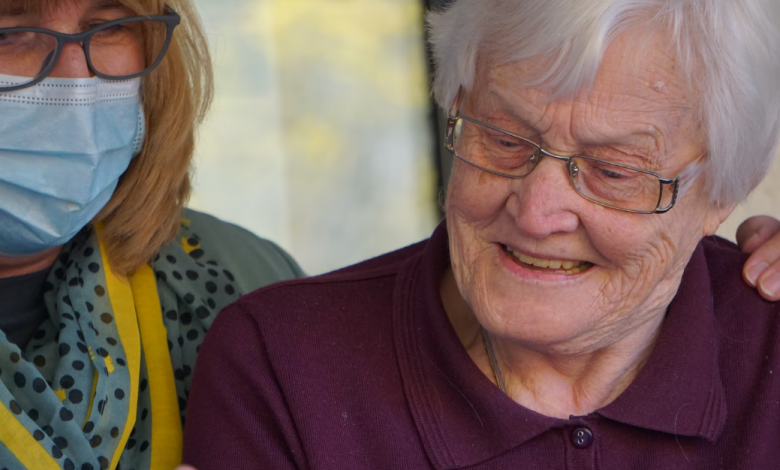What Does it Mean When Someone is in Hospice Care?

Hospice has a lengthy history, with some historians estimating that the first hospice patients were served over 1,000 years ago. Despite the fact that this practice has been for such a long period of time. Far too few people have a strong grasp of the aim of hospice. This is the question we are attempting to address today. However, in order to do so, we must first define the term ‘hospice’.
Hospice care is a type of palliative care that is directed at terminally ill patients. This means that you must have a medical prognosis of fewer than six months to live. This sentence can be frightening to address and almost certainly brings additional questions such as. “Does this indicate hospice hastens death?” or “Does this mean that if someone is incorrectly placed on hospice services, their life will be shortened?” No, it is not. Certainly not.
These myths about hospice circulate across society, negatively influencing people’s perceptions of end-of-life care and their capacity to receive the assistance they require before to death. Hospice does not expedite the end of life. The purpose of hospice is to enhance the patient’s quality of life and hence to maximize the amount of time remaining.
Does Hospice Increase Life Expectancy?
Although hospice is not intended to prolong life, multiple study institutions have found that it frequently does.
Frequently, prospective hospice patients have been coping on their own with significant physical and mental distress. When these patients are placed in hospice care, they are provided with a variety of therapies aimed at alleviating their agony. This additional physical, emotional, and spiritual assistance is meant to enhance the quality of life of hospice patients, enrich their lives, and bring comfort so they can live out their remaining days quietly.
Is hospice reserved for the terminally ill?
Hospice is for persons with a terminal illness. Hospice is for patients whose condition has deteriorated to the point where a doctor would not be surprised. If they died within the next six months. This does not imply that the patient will die within the next six months; rather, it indicates that he or she has a disease that makes death a possibility. Palliative care, on the other hand, provides similar services to hospice care. But for patients who may not certainly die within the next six months.
Isn’t using hospice synonymous with “abandoning”?
Certainly not! This is one of the most often asked topics regarding hospice, yet it is a myth. While your loved one’s health may have progressed to the point where a solution is unlikely — or the side effects of treatment are not worth it — this does not mean there is nothing left to do. Indeed, placing a premium on the quality of life and relieving pain and discomfort frequently enables the patient to spend his or her final months focused on what is ultimately most essential and meaningful. As one man put it, “I’d rather spend my limited time and energy with my children and grandchildren than drive to a treatment center and recover by a toilet bowl.”
Patients and families discover that they may focus on their relationships, healing old wounds and creating lovely memories together, with the competent guidance of a nurse and case manager and the assistance of home health aides, social workers, and chaplains. Rather of succumbing, hospice assists families in actually living well and supporting one another during a stressful, although very natural stage of family life.
Should we wait for the doctor’s recommendation of hospice?
You, but strangely enough, doctors frequently wait too long to bring it up or wait for families to bring it up. This is one of the reasons why hospice care is frequently sought so late in the process. If you believe your loved one and family would benefit from weekly home visits from staff trained in pain management and distress reduction, discuss hospice with your doctor now or in the near future.
If you are candid with yourself and believe your loved one may die within the next six to twelve months, discuss this with your doctor. Whether the response is yes, now is probably an appropriate moment to initiate a conversation about hospice.
Selecting Hospice Does Not Imply Selecting Death
Choosing hospice means committing to living completely and comfortably for the time you have remaining. While hospice patients are typically anticipated to die within six months or less. This does not mean that death is their primary concern. Indeed, many people survive far longer than six months. You can discontinue and resume hospice care at any time.
Typically, when someone chooses hospice, they have already been through a great deal. Patients may have nausea and fatigue as a result of several hospital hospitalizations, chemotherapy and radiation, and invasive testing and treatments. Hospice care can help patients avoid dying in agony and tiredness.
Having said that, hospice care is not limited to cancer patients. Indeed, hospice patients frequently have one or more of the following medical conditions: dementia, heart disease, liver illness, renal disease, or lung disease.
By selecting hospice, patients can focus on the quality of their lives rather than how long they can live. Especially if living longer entails stress and a lack of time for meaningful activities. With this perspective in mind, it’s evident that opting for hospice is a matter of prioritizing quality above quantity.



